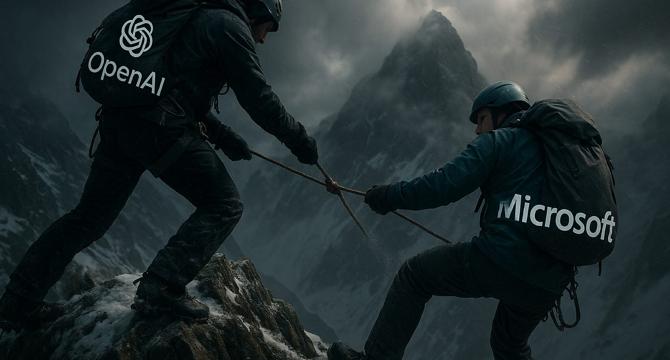Medium
3w
370

Image Credit: Medium
Contracts bind them, misalignment blinds them.
- Microsoft's partnership with OpenAI, initially seen as perfect, now faces challenges as their goals and timelines diverge.
- Microsoft's quarterly financial pressures clash with OpenAI's decade-long research approach on artificial general intelligence.
- The differing timelines lead to friction over decisions and milestones between the two entities.
- Microsoft's focus on revenue clashes with OpenAI's scientific pursuit, creating tension in their partnership.
- GPT upgrades generate hype, but the real value lies in the behavioral data that refines models over time.
- OpenAI's acquisition of Windsurf demonstrates the importance of human-driven data for model improvement.
- Microsoft seeks access to telemetry data for its Copilot software, sparking a contentious battle over data ownership and machine learning.
- The competition revolves around control of the learning curve rather than just algorithms.
- As compute resources become widely available, hosting services become a key negotiating point between Microsoft and OpenAI.
- The partnership faces challenges as Microsoft's logistical control diminishes in the face of OpenAI's potential alternative hosting options.
- The increasing legal focus in the partnership limits innovation and agility, potentially eroding Microsoft's competitive edge.
- Moving forward, the partnership may be portrayed positively in the press, but underlying tensions and diverging goals persist.
Read Full Article
22 Likes
For uninterrupted reading, download the app